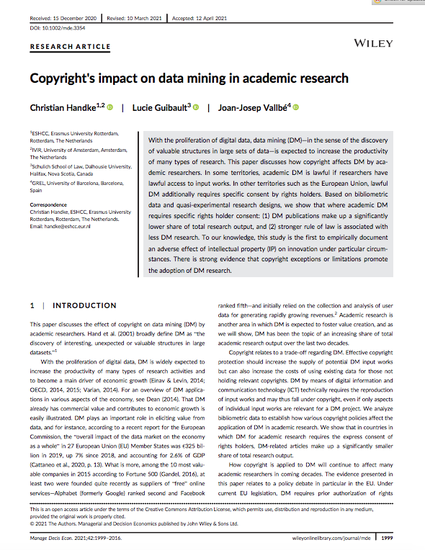
- data mining,
- digital data,
- data mining impact on academic research,
- intellectual property and innovation,
- copyright exceptions,
- copyright limitations
With the proliferation of digital data, data mining (DM)—in the sense of the discovery of valuable structures in large sets of data—is expected to increase the productivity of many types of research. This paper discusses how copyright affects DM by academic researchers. In some territories, academic DM is lawful if researchers have lawful access to input works. In other territories such as the European Union, lawful DM additionally requires specific consent by rights holders. Based on bibliometric data and quasi-experimental research designs, we show that where academic DM requires specific rights holder consent: (1) DM publications make up a significantly lower share of total research output, and (2) stronger rule of law is associated with less DM research. To our knowledge, this study is the first to empirically document an adverse effect of intellectual property (IP) on innovation under particular circumstances. There is strong evidence that copyright exceptions or limitations promote the adoption of DM research.

Special Issue: Economic Perspectives on the Future of Academic Publishing